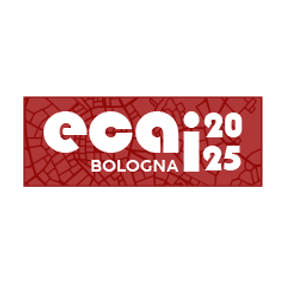Two papers accepted at ECAI 2025
CORE research group has two paper accepted at the European Conference on Artificial Intelligence (ECAI) 2025.
The European Conference on Artificial Intelligence (ECAI, Ranking A) is one of the top-tier conferences on artificial intelligence and will be hold in Bologna, Oct 25 - Oct 30th, 2025.
1. the paper "Beyond Pixels: Enhancing LIME with Hierarchical Features and Segmentation Foundation Models" by Patrick Knab, Sascha Marton and Christian Bartelt.
LIME (Local Interpretable Model-agnostic Explanations) is a well-known XAI framework for unraveling decision-making processes in vision machine-learning models. The technique utilizes image segmentation methods to identify fixed regions for calculating feature importance scores as explanations. Therefore, poor segmentation can weaken the explanation and reduce the importance of segments, ultimately affecting the overall clarity of interpretation. To address these challenges, we introduce the DSEG-LIME (Data-Driven Segmentation LIME) framework, featuring: i) a data-driven segmentation for human-recognized feature generation by foundation model integration, and ii) a user steered granularity in the hierarchical segmentation procedure through composition. Our findings demonstrate that DSEG outperforms on several XAI metrics on pre-trained ImageNet models and improves the alignment of explanations with human-recognized concepts.
2. the paper "Disentangling Exploration of Large Language Models by Optimal Exploitation" by Tim Grams, Patrick Betz, Sascha Marton, Stefan Lüdtke and Christian Bartelt.
Exploration is a crucial skill for self-improvement and open-ended problem-solving. However, it remains unclear if large language models can effectively explore the state-space within an unknown environment. This work isolates exploration as the sole objective, tasking the agent with delivering information that enhances future returns. Within this evaluation, we argue that measuring agent returns is not sufficient for a fair evaluation and decompose missing rewards into exploration and exploitation components based on the optimal achievable return. Comprehensive experiments with various models reveal that most struggle to sufficiently explore the state-space and weak exploration is insufficient. We found a positive correlation of exploration performance with language comprehension and reasoning capabilities. Furthermore, we show that our decomposition can provide insights into differences in behaviors driven by prompt engineering, offering a valuable tool for refining performance in exploratory tasks.
